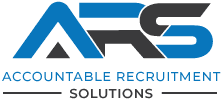Volunteering is not only good for the soul but also holds enormous benefits for yourself, your family and your community.
Benefits
1) Connects you to others – one of the best ways to make new friends and strengthen existing relationships is to commit to an activity together. Volunteering is a great way to meet new people, especially if you’ve located to a new area. Volunteering also strengthens your ties in the community and broadens your support and social network. You are meeting ‘like minded’ people with common interests.
2) Good for your mind and body – provides both mental and physical benefits. Volunteering can provide a healthy boost to your self confidence, self esteem and your overall life satisfaction. Your role as a volunteer can give you a sense of ownership, pride and personal identity. The more positive you feel about yourself, the more likely you are to have a more optimistic outlook on life and plan and achieve your future goals. Volunteering also combats depression. A key risk factor for depression is social isolation. Volunteering helps you keep in touch and engaged with people. Volunteering is good also for your physical health, in particular older adults.
3) Advance your career – If you’re considering a new career, volunteering can assist you gain experience in the area you’re interested in. Not only does it allow you to gain new skills in your new career, however it can connect you to people who are experienced and could provide you with an insight before making a commitment. Volunteering allows you to further develop your team work, communication, time management and organisational skills. If you’re unemployed at present, volunteering also looks fantastic on your resume. Check your local volunteer organisations as they cater for numerous industries and professions. You may also be able to get someone who supervised you whilst volunteering to act as a referee.
4) Brings fulfilment to your life – is fun and easy to explore your interests. Doing meaningful work can be relaxing and can also allow you to escape from the day to day routine that you may be currently experiencing. Maybe the timing is right to re-invigorate and re-invent yourself – possibility re-invigorates your creative flair, motivation and zest for life. A lot of people make time for volunteering outside of work as well ie people with desk/indoor roles may want to assist with an outdoor project to ensure that maintain balance in their life.
How to find the right volunteer opportunity
The key is to find a volunteer position that you would enjoy and are capable of doing. It is imperative that your commitment matches the organisations needs. Ask yourself the following questions:-
• Would I like to work with people or would I rather work in solitude?
• Am I better behind the scenes or would I prefer to take a more visible role?
• How much time can I commit?
• How much responsibility am I willing to take on?
• What skills can I bring to the volunteer job?
• What causes are important to me?
Why not look at volunteering?
